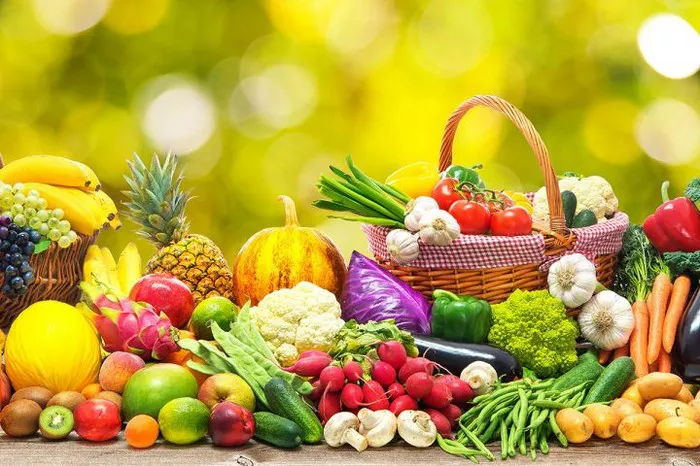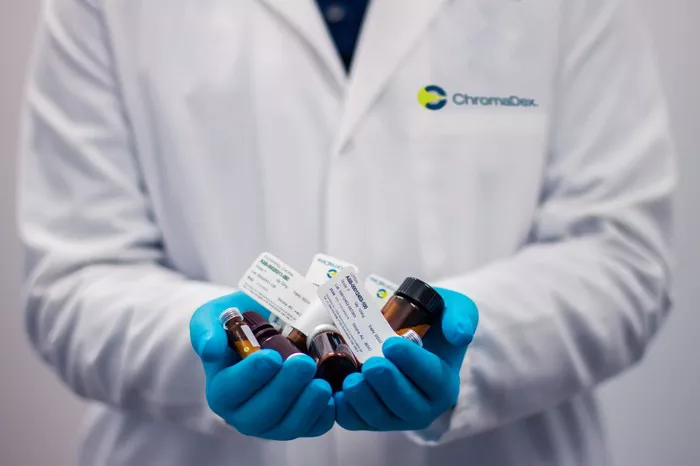Ovulation, a crucial phase in a woman’s menstrual cycle, marks the release of an egg from the ovary, ready for fertilization by sperm. This process is pivotal for conception and lies at the heart of fertility. Understanding the intricacies of ovulation is essential for those seeking to enhance their chances of conception. Ovulation typically occurs around the midpoint of a woman’s menstrual cycle, and its timing can vary from woman to woman. Factors such as stress, hormonal imbalances, and certain medical conditions can influence ovulation, making it important to maintain hormonal health. Diet plays a significant role in supporting this delicate balance of hormones, thus optimizing ovulation and fertility.
Nutrients That Support Ovulation
Various nutrients play key roles in supporting ovulation and hormonal balance. Ensuring an adequate intake of these nutrients can contribute to regular ovulation and improve fertility outcomes.
1. Zinc: This essential mineral is involved in numerous cellular processes, including hormone regulation and egg development. Foods rich in zinc include lean meats, shellfish, beans, nuts, and sunflower seeds.
2. Vitamin B6, B12, and Folic Acid: These vitamins are crucial for lowering homocysteine levels, which is beneficial for promoting regular ovulation. Sources of these vitamins include poultry, fish, leafy greens, and fortified grains.
3. Omega-3 Fatty Acids: Found in fatty fish like salmon, flax seeds, and walnuts, omega-3 fatty acids possess anti-inflammatory properties and support overall hormonal health, potentially enhancing ovulation.
4. Iron: Iron plays a vital role in transporting oxygen throughout the body, including to reproductive organs. Incorporating iron-rich foods such as spinach, quinoa, and turkey can help maintain optimal iron levels for healthy ovulation.
5. Calcium: This mineral is essential for muscle function and bone health, but it also plays a role in regulating hormones involved in ovulation. Foods rich in calcium include seeds, yogurt, and lentils.
Foods to Eat for Optimal Ovulation
Choosing nutrient-dense, whole foods is paramount for supporting ovulation and fertility. Incorporating the following foods into your diet can provide the essential nutrients and antioxidants needed for optimal reproductive health:
1. Leafy Green Vegetables: Spinach, kale, and Swiss chard are excellent sources of folate, iron, and other nutrients crucial for ovulation.
2. Beans and Legumes: Beans such as lentils, chickpeas, and black beans are rich in protein, fiber, and essential minerals like zinc and iron.
3. Whole Grains: Opt for whole grains like quinoa, brown rice, and oats, which provide complex carbohydrates and B vitamins necessary for hormonal balance.
4. Fatty Fish: Include fatty fish like salmon, mackerel, and sardines in your diet to benefit from their omega-3 fatty acids, which support ovulation and reproductive health.
5. Nuts and Seeds: Almonds, walnuts, chia seeds, and flax seeds are excellent sources of healthy fats, protein, and minerals vital for hormone production.
Dietary Patterns for Improved Fertility
Adopting specific dietary patterns has been associated with enhanced fertility outcomes. The Mediterranean diet, characterized by high consumption of fruits, vegetables, whole grains, and healthy fats like olive oil, has been linked to improved fertility in women. Similarly, diets rich in vegetable proteins and healthy fats, such as those found in nuts, seeds, and avocados, have been shown to support hormonal balance and ovulatory function.
Tracking Ovulation and Adjusting Diet
Monitoring ovulation can help optimize fertility efforts. Methods such as tracking basal body temperature, monitoring cervical mucus changes, or using ovulation predictor kits can help determine the most fertile days of the menstrual cycle. Adjusting diet according to menstrual cycle phases can further support hormonal balance and ovulation. For example, focusing on iron-rich foods during menstruation and incorporating more folate-rich foods during the follicular phase can align nutrient intake with the body’s changing needs.
Latest Research and Insights
Recent studies, including research from the Harvard T.H. Chan School of Public Health, continue to underscore the importance of diet in fertility optimization. These studies highlight the significant impact of healthy eating habits on reproductive health and fertility outcomes. By prioritizing nutrient-rich foods and adopting a balanced dietary approach, individuals can potentially enhance their chances of conception.
Practical Tips for Incorporating Fertility-Boosting Foods
Incorporating fertility-boosting foods into your daily routine doesn’t have to be complicated. Here are some practical tips and meal planning ideas to help you nourish your body for optimal ovulation and fertility:
1. Plan Balanced Meals: Aim to include a variety of nutrient-rich foods in each meal, such as lean proteins, whole grains, fruits, and vegetables.
2. Snack Smart: Choose nutrient-dense snacks like Greek yogurt with berries, a handful of nuts, or carrot sticks with hummus to keep energy levels stable throughout the day.
3. Stay Hydrated: Drink plenty of water throughout the day to support overall health and hydration, which is essential for reproductive function.
4. Limit Processed Foods: Minimize consumption of processed foods, sugary snacks, and beverages high in added sugars, as these can disrupt hormonal balance and fertility.
5. Seek Professional Guidance: Consider consulting with a registered dietitian or healthcare provider for personalized dietary recommendations tailored to your specific needs and goals.
Conclusion
In conclusion, adopting a nutrient-rich diet and healthy lifestyle habits can play a significant role in supporting ovulation, hormonal balance, and fertility. By focusing on whole, minimally processed foods rich in essential nutrients and antioxidants, individuals can empower themselves to optimize their reproductive health and enhance their chances of conception.



























